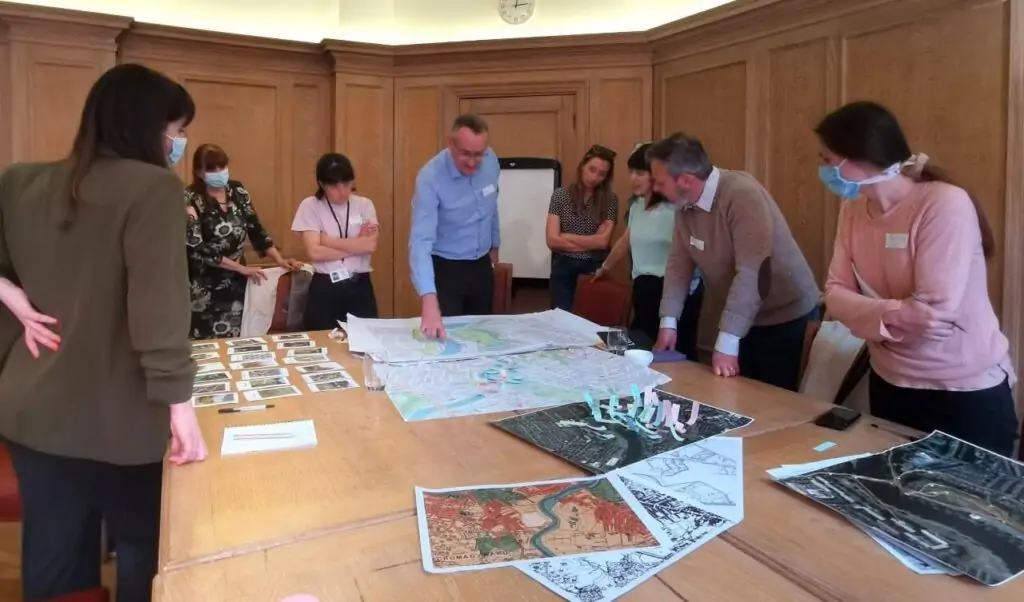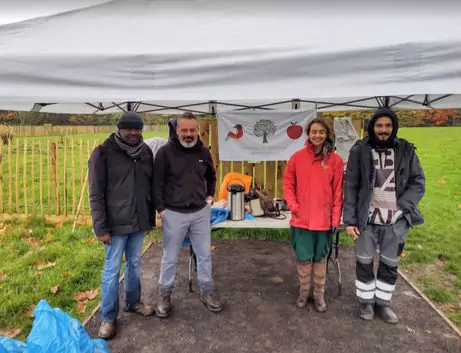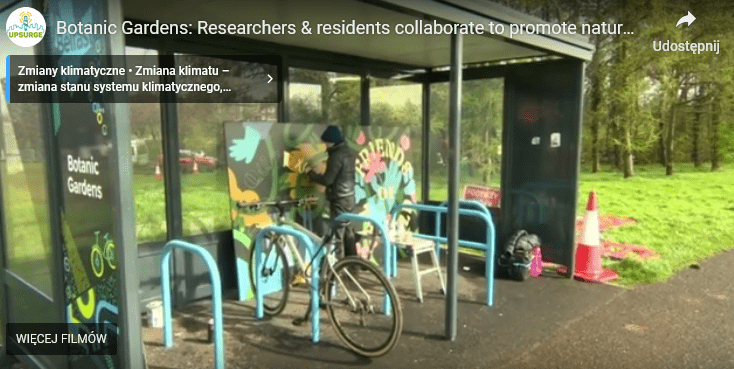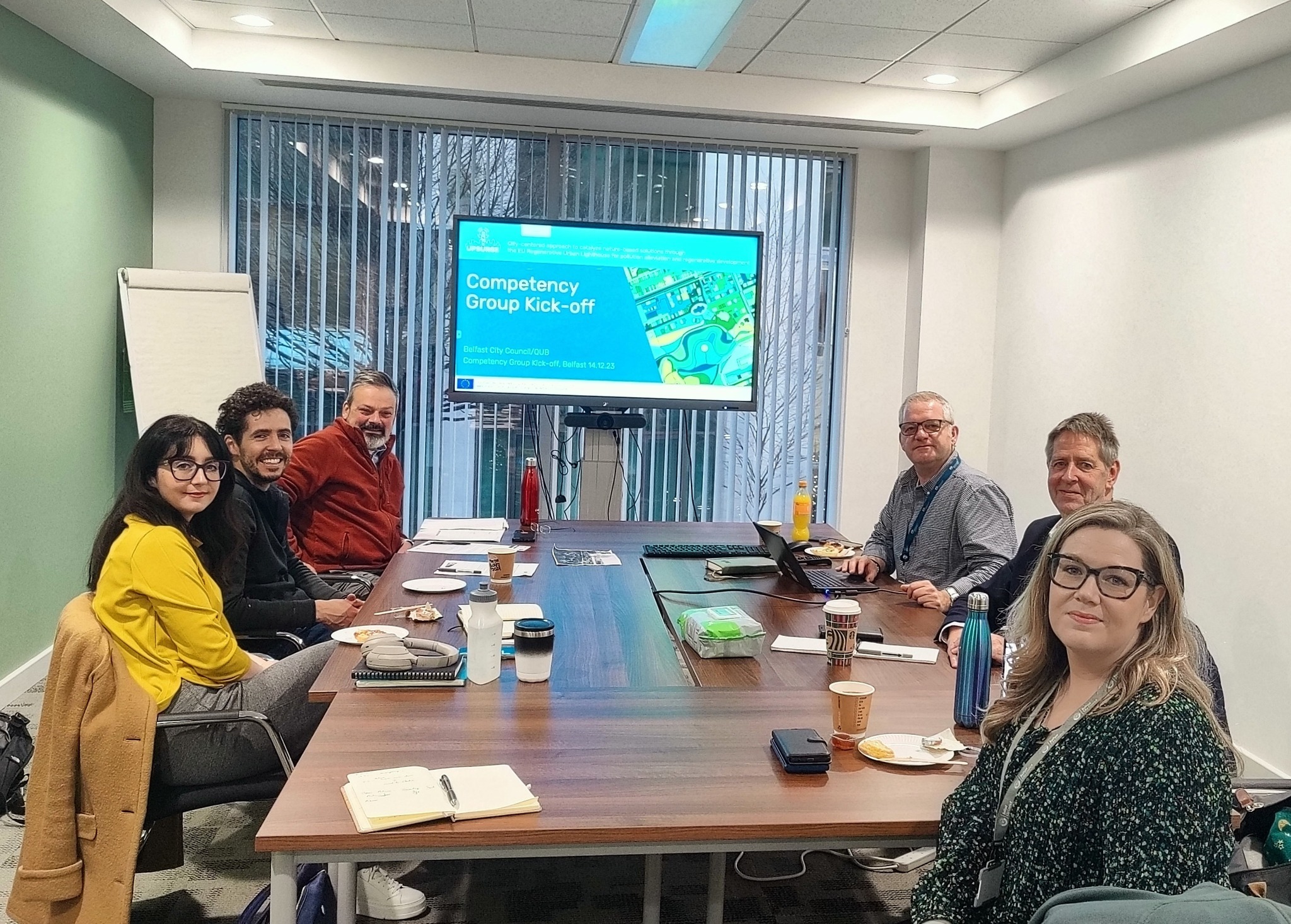Queen’s University Belfast and Belfast City Council hosted a bi-annual project group meeting for the UPSURGE project in September 2024. The following video, that was commissioned by Queen’s University Belfast, captures perspectives on the impact of UPSURGE, highlighting progress in implementing nature-based solutions in Belfast. It was jointly funded by Belfast City Council and the Queen’s University Belfast’ s ‘Agility Fund’. Videography by SlackPress Media.
Belfast demonstration will enable urban agroecology and re-carbonisation of soil
Development of an urban agroecologic area. Sustainable agricultural practices and investing in sustainable soil management (centered on the maintenance of current Soil Organic Carbon stocks and further sequestration) entail multiple benefits in terms of food security and nutrition, poverty reduction, provision of ecosystem services, climate change mitigation and sustainable development.
Many Belfast neighborhoods are disconnected due to a number of “peace walls”, which were erected to prevent violence between communities during conflicts, that continue to separate local areas. To support the ongoing peace-building process, Belfast has developed a strategic framework for the city known as “The Belfast Agenda” that is delivered through city community planning structures.
The area of the demo site consists of an unused, derelict site within Belfast Botanic Gardens, in close proximity to university facilities, local schools, a local theatre, and several local neighborhoods.
The area surrounding the demo site provides a rich and diverse ecosystem for the project to engage with, alongside opportunities to build social cohesion, learning and neighborhood approaches to sustainable urban agroecology.
- Applying tailor-made urban soil encouraging organic urban agriculture and recarbonization of soil.
- Deployment of community gardens using recycled materials that are bioreceptive and can support plant growth.
- Repurposing and regenerating of an unused part of the urban area with community agroecology gardens, green spaces and gardens.
- Implementing participatory co-creative process as a basis for successful agroecology community establishment.
- Educational and mentoring activities for communities, citizens, schools and undergraduate students.
NEW! Follow the Belfast demo storymap
Place Lab in Belfast
The Belfast Place Lab was setup in late 2023 and involved engagement with key stakeholders in the city already involved in the codesign process for the NBS demonstrations. It also involved a public call for applications which went out on the City Council’s social media. In December 2023 the Competency Group held its first get together and later in the month we held a design workshop to co-create the operational action plan for the Place Lab. The members of the Place Lab are:
- Friends of Belfast Botanic Gardens
- Friends of the Field
- Queen’s University’s School of the Natural and Built Environment
- Belfast City Council Climate Team
- Belfast City Council Parks Team
The initial action plan was developed through discussion, debate and collaboration at the workshop and involved ideas that were relevant to the context of Belfast’s nbs demonstration. For example, Friends of the Field have been an active partner on the site and are now running the agroecology community garden. They, in collaboration with Belfast City Council, are running a series of BioBlitzes on the site to encourage local interest in biodiversity and increasing species rich grasslands across the city. Through fun and engaging activities on site, FoF have built a large following online and have been reporting on the interesting species being identified on the site. This is one of the objectives of the action plan which has been truly bottom up and locally led, building greter sustainability around the project. Another one of the objectives of the action plan has been to explore gender based issues relating to NBS. In Belfast we have linked this to a new group called the Violence Against Women and Girls Working Group, which was established through another partner project the City Council and Queen’s is involved in called GroundsWell. One of the members of the Place Lab now sits on this group and is supporting research into policy that will strengthen discourse in this area. An application has been made to GroundsWell for funding to run local engagement about safety of women and girls in the area, and throughout the codesign process issues of lighting, urban design and inclusion of women and girls has influenced the design of the NBS demonstrations on site. The Place Lab has now expanded to include another new local group that has been established called Stranmillis Neighbourhood Association and we are updating our action plan to include their interests in supporting widening greening efforts across residential streets in the area through, for example, alley greening, which has become hugely popular across Belfast in the past couple of years. The Council is now supporting a range of growing and greening alleyways projects and using expertise gained in UPSURGE to help monitor how socially and ecologically this is creating greater climate resilience for the city and supporting vulnerable people
NBS implementation
- UK SPF Funding Awarded for paths, new entrance, living bike stand and fences – March 2023
- Lidar/topographical survey – March 2023
- Citizen led Bioblitz – May 2023 & July 2023
- Outline Habitat survey – September 2023
- Contamination survey – November 2023
- Full ecological baseline assessment– July 2024
Story map website
The evolution of this Demo site is also shown through pictures and small descriptions in the UPSURGE Story map website.








